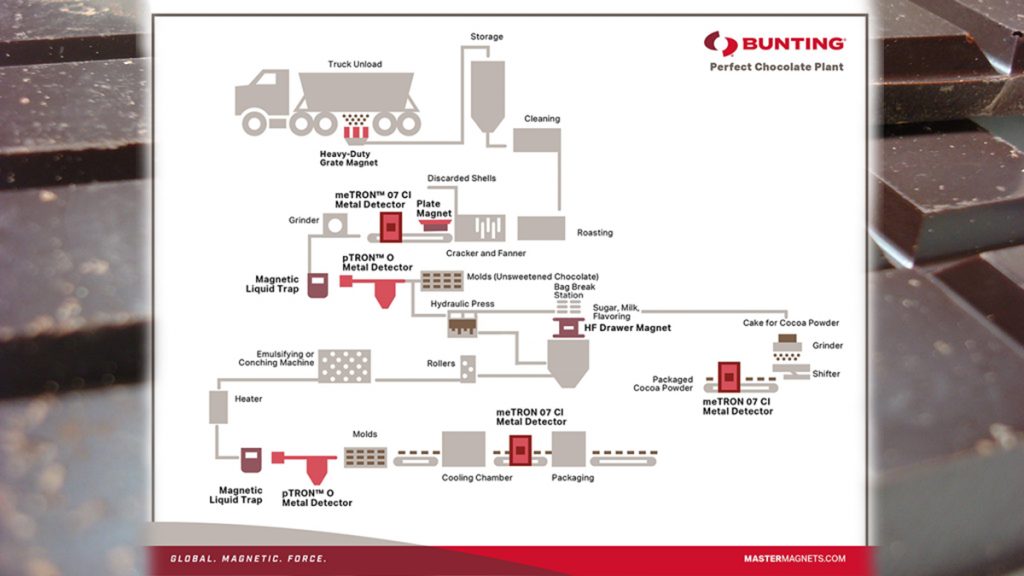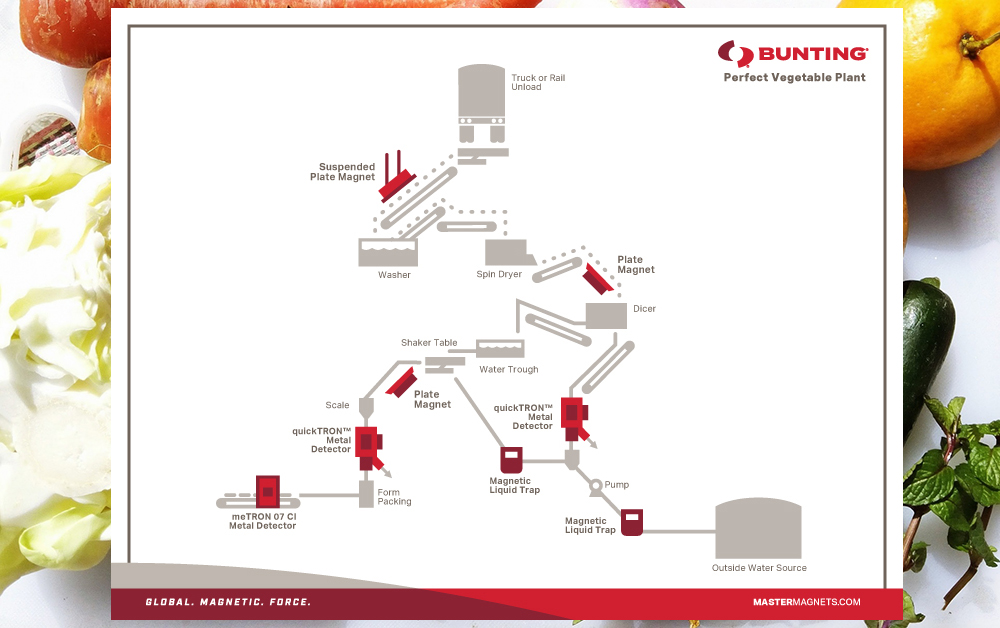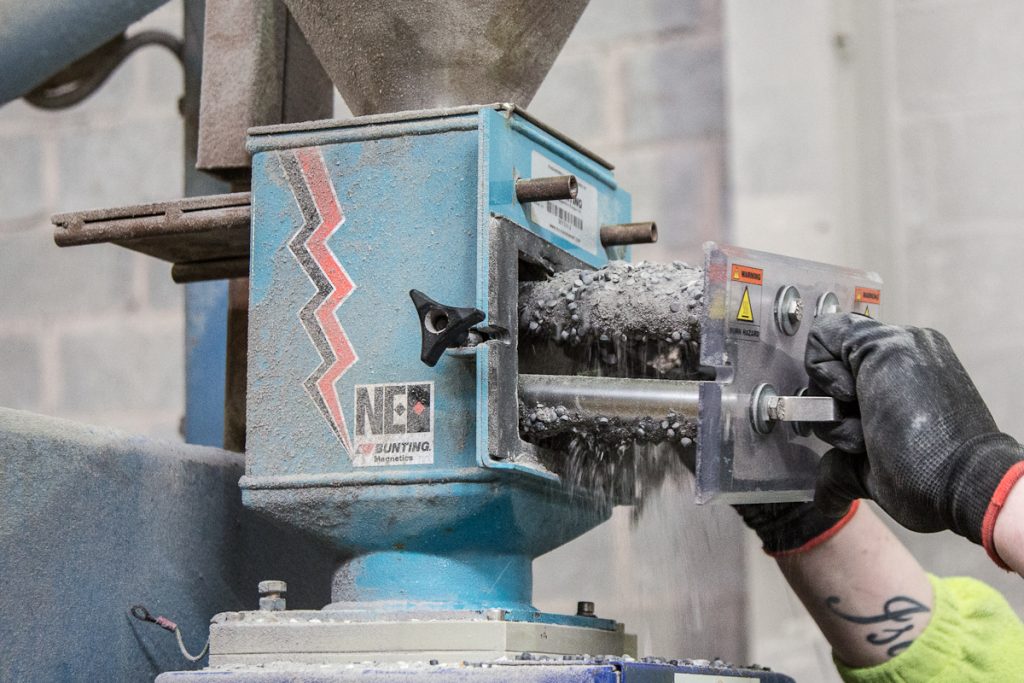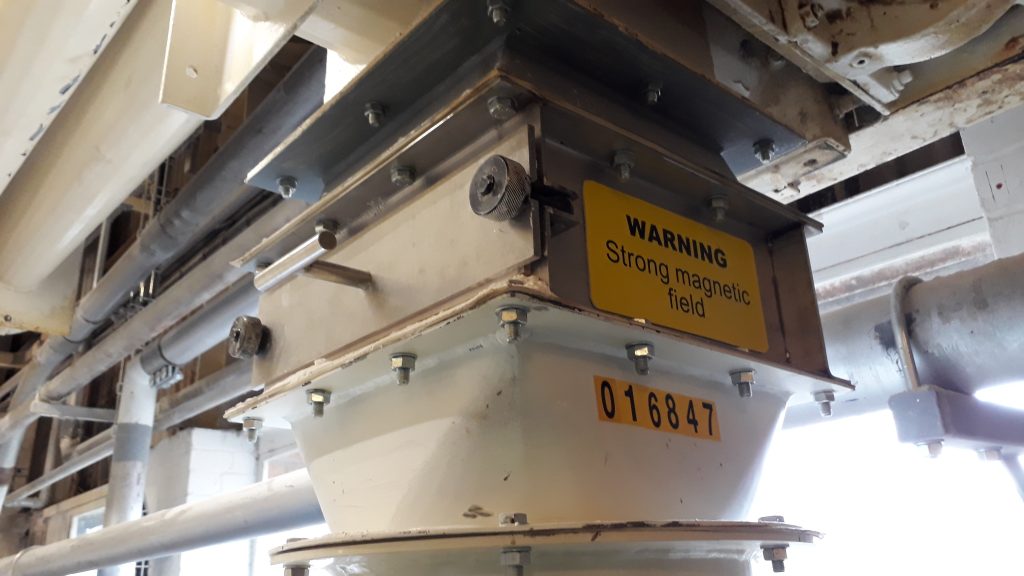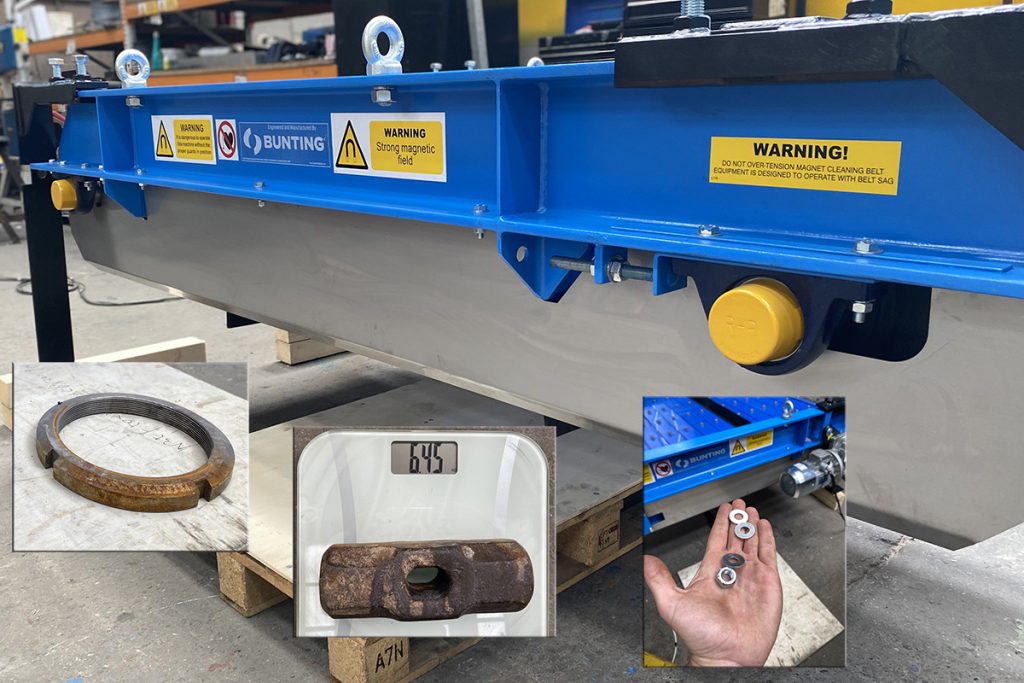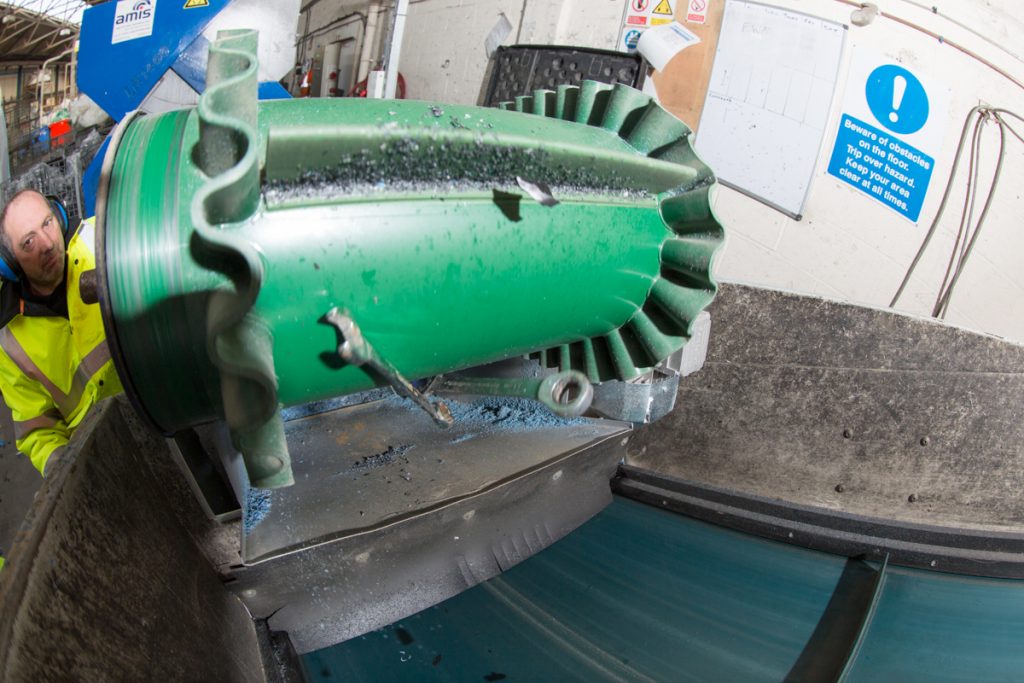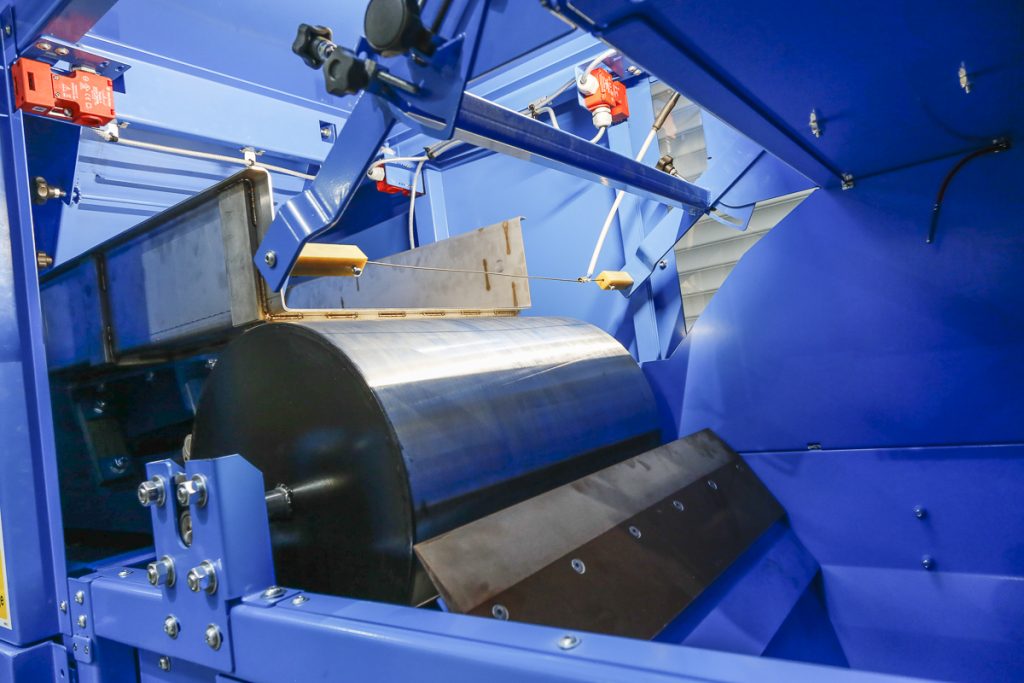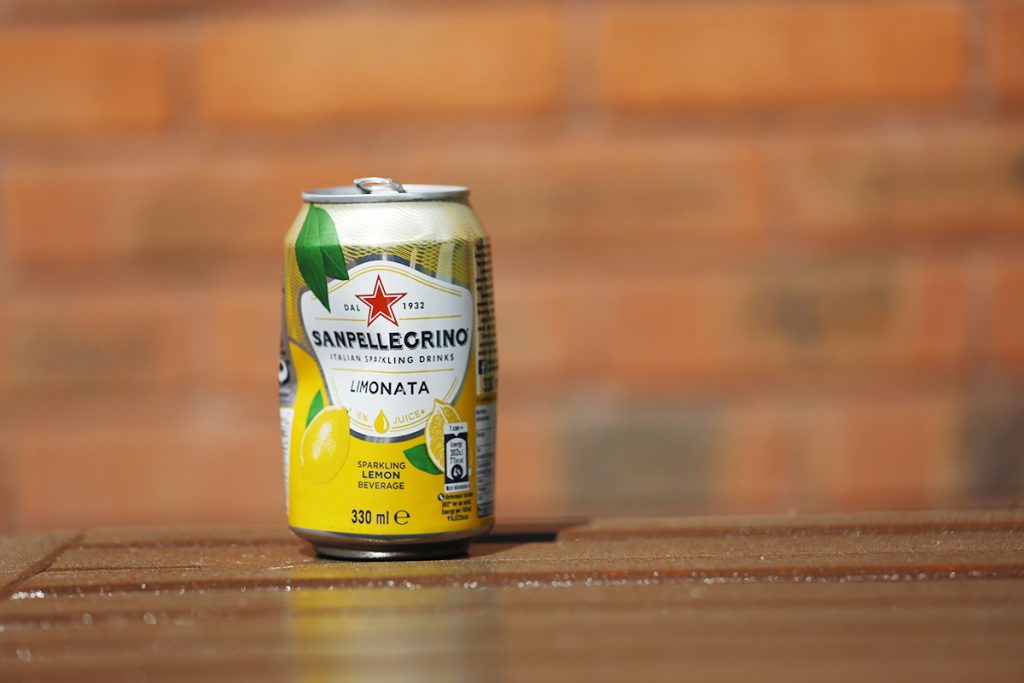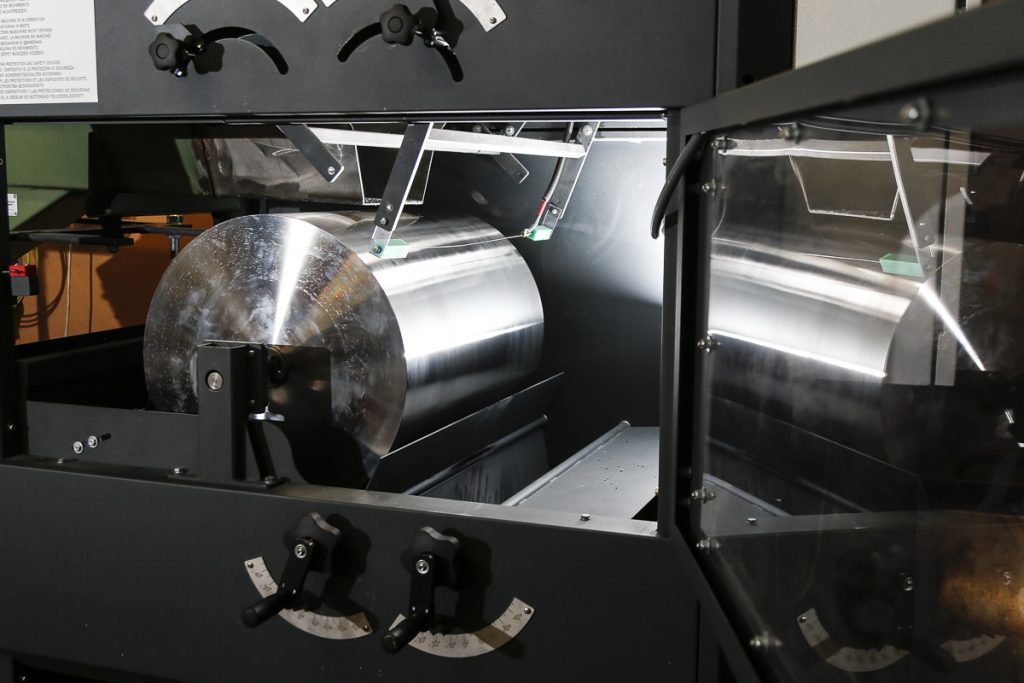Industry
Getting Metal Out of Chocolate
Getting metal out of chocolate
Read MoreGetting Metal Out of Processed Vegetables
Magnetic Separators and Metal Detectors in a vegetable processing plant
Read MoreEcoVyn Reduce Plastic Waste by 94% with Bunting
EcoVyn Ltd has installed two Bunting Drawer Filter Magnets to remove ferrous metal contamination from plastic waste. Since the installation of the magnetic separators, EcoVyn has reduced their waste by 94%. EcoVyn Ltd is at the forefront of PVC compounding and brings pioneering new technology to the market place. They offer one of the most advanced and innovative…
Read MoreMagnetic Separator Audit for Jordans Dorset Ryvita
Bunting engineers have conducted a thorough review of all the Magnetic Separators installed at the Jordans Dorset Ryvita plant in Poole, Dorset. The magnetic separator audit was completed over three days, including attending site on Saturday to prevent any loss in production. Jordans Dorset Ryvita has a strong heritage of making whole grain foods and working with farmers to…
Read MoreDemonstrating the ElectroMax Overband Magnet’s Power
The ElectroMax Overband Magnet has proved extremely popular since the launch in May 2019. Shipments average at over one ElectroMax per month with an increasing number of mobile plant, mining and recycling companies turning to the air-cooled ElectroMax Electro-Overband Magnet as a high-performance, lightweight option to the traditional Permanent Overband Magnet. Technical information: Overband Magnets…
Read MoreKeeping Ceramic Tableware Iron Blemish Free
Fine iron and iron-bearing minerals cause visual and structural defects in ceramic tableware. Such contamination appears as small dark spots on the surface or is hidden within the body and causes premature cracking of the ceramic. The cup, saucer or plate is then either rejected or reworked. Iron contamination The problem of iron contamination is…
Read More3 Metal Parts Contaminating Plastic Waste
Recycling plastic waste is challenging at the best of times. However, when contaminated with ferrous metals, recycling is hindered by equipment damage, production downtime and poor end product quality. Thankfully, installing the optimum magnetic separator ensures that such ferrous metal contamination is removed. In this article we look at three examples of ferrous metal contamination…
Read MoreElectroStatic Separation of Minerals
Article written by Neil Rowson, Professor of Minerals Engineering in the School of Chemical Engineering at the University of Birmingham Electrostatic phenomenon dates back to 600 – 700 B.C. when people noticed static electric effects (attraction of hair) when amber was rubbed with fur. Indeed, the word ‘electrostatic’ comes from the ancient Greek word ‘electron’…
Read MoreRecord UK Aluminium Packaging Recycling Rate
The aluminium packaging recycling rate in the United Kingdom rose to a record high of 56% in 2019, up from 52% in 2018 (Environment Agency data published by National Packaging Waste Database (NPWD and reported on the Alupro website). The business recycling target of 61% was also exceeded by 2% with the recycling of a…
Read MoreNew ElectroStatic Separator
The launch of the new Bunting ElectroStatic Separator is in response to enhanced material separation requirements in the recycling, plastics and minerals industries. The ElectroStatic Separator uses tungsten electrode wire to generate electrostatic charges to separate dry liberated particles. The new technology significantly broadens separation capabilities, opening up new opportunities for recovering materials from waste…
Read More